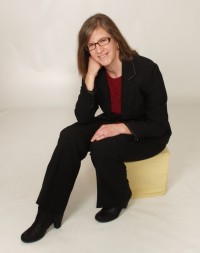In general, mine is a family of food snobs. My eldest son crossed a school off his college list because “Really, Mom, how can I be in a town for four years that doesn’t even have Indian food?” And those of you who know me (or are at least familiar with me through my writing) know my propensity to push healthy food choices. So it may seem somewhat strange that I’m about to extol the virtues of a burger joint. But it’s actually totally consistent.
As far as general food snobbery, most people like a good burger now and then, and Red Robin makes a good burger.
As far as the healthy food choice thing goes, Red Robin makes it a lot easier than many other places to make nutritionally sound picks.
This past summer, one particular combination of items at Red Robin was called out for adding up to 3540 calories. It included a bacon cheeseburger (with lots of other stuff on it, like battered, fried onions and creamy sauces) with an extra meat patty, “bottomless” fries, and a large milkshake (with an extra refill glass). Anyone could tell you that a meal like that will pack a lot of calories. And fat. And refined carbs.
I am not defending that meal. But I am defending the restaurant.
Red Robin has a full array of meal options, has multiple ways to make your lunch or dinner healthier, and tends not to be financially punitive for healthier choices. Rather than ordering a huge milkshake with a refill included, you may order an unsweetened iced tea. As far as the burgers go, you can substitute a ground turkey burger, a veggie burger, or a grilled chicken breast for no extra charge. You can choose a whole grain bun or even a lettuce wrap for the sandwich (which they do quite well, I must say). If you choose not to have their “bottomless” fries, they do not charge you extra to substitute (also “bottomless”) salad, steamed broccoli, or cut-up fruit. And they have many other meal options, all of which they readily tailor to your specific dietary requests.
I cannot tell you how annoyed I become when a restaurant “punishes” me for trying to choose a healthier modification to their meal. A local trendy breakfast place, when I wanted to skip the large pile of fried potatoes that came with my eggs, charged me $2.50 to instead serve me two completely anemic tomato slices. This was several years ago, and I have not gone back there.
So when a major restaurant chain provides me with choices that include vegetables, fruit, and lower fat proteins, and when they don’t up-charge the healthier options, I say, “Bravo!”
I’m fine with the milkshakes remaining on the menu. It is my choice to avoid them most of the time, and I discourage my kids from indulging regularly in them. But every once in a while, it’s ok if we split a mint chocolate shake. Especially if our preceding dinner had sides of broccoli rather than fries.
The person doing the ordering has the power to determine what they will ingest. Use common sense. Eat veggies. Use olive oil. Drink water or unsweetened iced tea. Save the indulgences for rare occasions, and share them so that there is reasonable portion control. And give props to the establishments that make it easy to do so.
